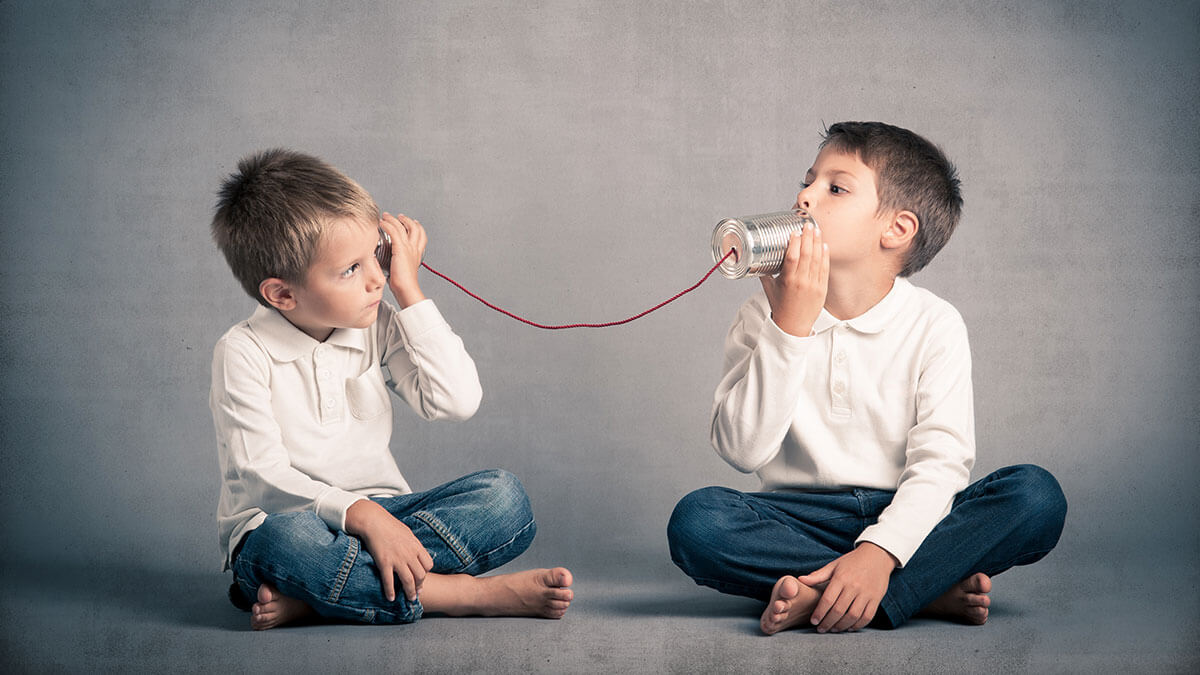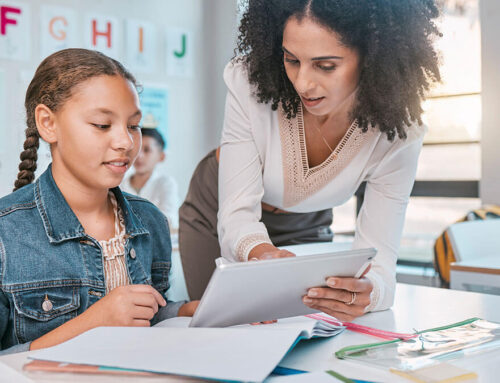Effective Communication with the IEP Team Matters

The Individuals with Disabilities Education Act (“IDEA”) places a premium on parental participation in the Individualized Education Program (“IEP”) process. The development of an IEP is a cooperative process between parents and school staff. Effective communication helps everyone stay focused on the child’s needs and the facts that support those needs, while helping to reduce conflicts and disagreements. Effective communication is more than just what and how something is said but also documenting the communications to create a clear record. Developing a clear record means having information available that a parent can rely on and refer to in explaining and supporting concerns.
Communication directly impacts the development of an IEP. An IEP is developed by discussing what everyone knows about the student, and how it impacts that student’s ability to access their education. A school must make every effort to ensure parents have an opportunity to participate in the development of the IEP. Parent participation does not guarantee that everyone on an IEP team will agree about the student’s educational needs. Parents and school staff may use different language to discuss concerns or have different priorities. Disagreements can lead to frustration and a breakdown in communication, taking the focus away from the student.
Focusing on a few simple strategies can help a parent improve communication and keep the IEP process on track. Learning about the IEP process can help a parent understand the school’s obligations, their role on the IEP team, and what is important to communicate. Preparing a list of concerns and priorities ahead of an IEP meeting helps keep the conversation focused. Establishing the student’s educational needs before asking for services and supports to address them will help avoid disagreements about the validity of those concerns. Explaining concerns with facts not frustration, staying on point, and being comfortable moving on are all important strategies a parent can employ. The longer an IEP team spends disagreeing the more muddled communication is likely to become.
The way a parent discusses concerns with the IEP team sets the tone. It’s not uncommon for parents to trust a school and an IEP team until communication breaks down. Once the trust is broken it often becomes harder to work together. When communication breaks down, it may lead to negative interactions and more disagreements moving forward. Maintaining a positive tone and relationship with the members of the IEP team, even when it is difficult, helps ensure that the IEP team stays focused on the child’s educational needs and keeps the IEP process moving forward.
The school is ultimately responsible for making an offer of a Free Appropriate Public Education (“FAPE”) in the Least Restrictive Environment (“LRE”). However, when a parent’s participation interferes with the school’s obligation it may leave a parent without effective recourse. Effective communication helps tell the story of a parent’s participation and role in keeping the IEP process moving forward. Whether at an IEP meeting or in an email, the tone and clarity of communication can create a record parental cooperation and reasonability while documenting facts to support a student’s needs.
Written communication creates a clear record for current and future IEP teams. An IEP should create a clear picture of a student’s needs and how those needs will be address in the educational environment. However, an IEP is only as good as the information it is based on. If there is a disagreement about how a student presents in school, a parent may need examples to support those concerns. Emails, text messages, communication journals, and the like can go a long way to show the concerns are not isolated or speculative. For example, if a teacher communicated that it is very hard to keep the student in their seat, the parent could discuss this in an email, gather more information, and ask if more support is a necessary to address the teacher’s concern.
Important communications happen during IEP meetings. Audio recording is the best way to document an IEP meeting. In California, a parent can audio record an IEP meeting by providing the school with at least 24-hours written notice of the intent to record. At an IEP meeting a parent has an opportunity to ask questions, get updated information, and share concerns. The entire conversation at the meeting rarely finds its way into the IEP document itself. A parent who is recording an IEP meeting should clearly articulate their concerns, establish the needs relevant to the child’s education, and ask how the IEP might need changes to address those needs. A recording is a great reference to show that concerns were raised and that parents were working collaboratively.
Document informal communications to ensure concerns are not overlooked. A lot of communication is lost because it falls outside the formal IEP process. For example, a teacher, instructional aide, school counselor, or even another parent may share insight in a passing conversation. Perhaps a parent is receiving calls to pick their child up early from school. Or, during a conversation with a teacher, a parent may learn surprising information about a student’s progress. These types of information may be important and useful to the IEP team. However, the source may not be available or able to recall the information during an IEP meeting. Following up with an email after a conversation can help ensure the accuracy and understanding of the information and provide something to refer back to if there is a difference of opinion later. Parents often miss the day to day follow up that can make a difference in communicating concerns and resolving disagreements if they arise.
Parents should recognize opportunities to create a record. Schools and staff often use new technologies to communicate, like online share documents and school reporting systems. These methods of communicating often change as they are updated or even disappear at the end of the school year. Taking a screenshot or downloading conversations can help ensure there is an accurate record of things like grades or whether assignments were turned in at a specific time. Parents may want to keep a photocopy or scan of journals or logs that may go back and forth between school and home in case a new one is started or the old one disappears. In practice, a parent may not realize what is important until trying to explain a concern and the information is not available. Taking proactive steps to establish good day to day habits will help create a record that supports effective communication with the IEP team.
Effective communication with your child’s IEP team can lead to better outcomes. Thinking about how communication is interpreted by the IEP team can help make parental requests easier to navigate. Setting the right tone from the start can help minimize conflicts when disagreements arise and keep the IEP team on track. Because the IDEA places a high value on parental participation and views special education as a cooperative process, the way a parent approaches communication can directly impact how disagreements are resolved. Additionally, if a parent needs help, effective and well documented communication can make the process of getting help easier and quicker when there’s a clear record of the concerns and disagreements.
Stay Informed!
Get the latest information about Brightside Law Group including free webinars, online workshops, up-to-date information about special education and more!




